by Coos County Conservative District | May 15, 2024 | Articles
2024 LWG Key Take Aways:
- Need for all markets (small & large scale) and all stakeholders to collaborate & be proactive working together as a community to create a balance within our county for optimal natural resource & economic success
- Highlight markets (farmers markets, timber, wildlife, tourist, recreation, fisheries, natural resources, farms, etc) and access if any gaps
- District assists with facilitation of county-wide connections, SCC assist with state level
- Attend meetings, host meetings and encourage public involvement and voice/discussions
- Concern and need to also establish stronger county-state connections/collaboration across all agencies/organizations
- Coos feels secluded majority of the time due to geographical distance from state offices
- Establish stronger connections with county officials, state officials, regional officials, legislatures, representatives, senators, governor, etc
- Need for strong educational programs within the community and schools
- Concern and care for our natural resources/economy, the north country way of life will only be preserved through engaging our younger generation as early in their years as possible and continue until they are off into college and into adulthood
- Clarify pathways from K-12 to jobs (in Coos/out of Coos)
- Partnership with White Mountain Community College & UNH, PSU?
-
-
-
- How can we support WMCC Environmental Program, Vet program?
- How support two-year degrees into four-year degrees within Coos County?
- Opportunities for internships or field study, science classes in Coos
-
-
-
- How can we support this more?
- BHS has an internship specialist, what other connections for internships are there at the schools?
- There are Environmental and Agriculture classes offered for White Mountain Regional HS and Pittsburg/Colebrook schools, what does BHS need for classes, as they do not offer these? Any others?
- Any science/nature clubs? If not, how establish?
- Berlin HS used to have a forestry two-year program offered, could that happen again? What would be the interest?
- Community College offer forester certification? Pesticide certification? Wildlife biology program?
- Host a Career Day/Job Fair
-
-
-
- Central location- Lancaster Fairgrounds, invite all conservation, science-based agencies and organizations to attend or at the community college?
-
-
-
- Since 1991 only one school, White Mountains Regional HS participated in the Envirothon in 2021 (District assisted), otherwise bussing, travel distance, teacher availability, small amount of student interest, are all challenges faced for Coos school participation
- Create a Coos specific Envirothon?
- State level- Move the event to PSU, closer and equal distance for all schools within the state
- State level- Create separate divisions based on school size/resources?
- State level- Create a Coos specific position who works with all interested students/schools within the county to train and educate the students in person/zoom etc
- Need for additional positions/funding
- Concern only one full-time staff person, how can that one person attend all these meetings and connect all these markets, stakeholders within the county and connect with the state level and still complete/create all job required tasks, programs, projects, grants, etc? Not realistic!
- Need outreach specialists/education specialists
- Need more butchers (local butchers are currently booked for almost two years in advance)
- Need a large animal veterinarians
- No current large animal vets in Coos & closest is 2-3 hours away, very costly
- Need a local Land Trust, (Coos doesn’t have one), conserve our lands for future
- Legislation/county officials/partners
- Can they assist with funding for these positions? County, State, Federal, NRCS, UNH?
Summary:
There are lots of key factors that come into play with the balance of our natural resources and supporting those who support our resources. There is a need for more conservation-based education starting as young as possible and continuing through adulthood. However, to achieve the balance and provide the educational opportunities, realistically there needs to be financial support/collaboration to create more positions to pursue the connection goals!

by Coos County Conservative District | Jun 2, 2021 | Articles
Native Plant Nursery
The District’s Native Plant Nursery, is a continually growing project. Our native plants, once established, will be available to local, state and private agencies working on conservation, erosion control projects.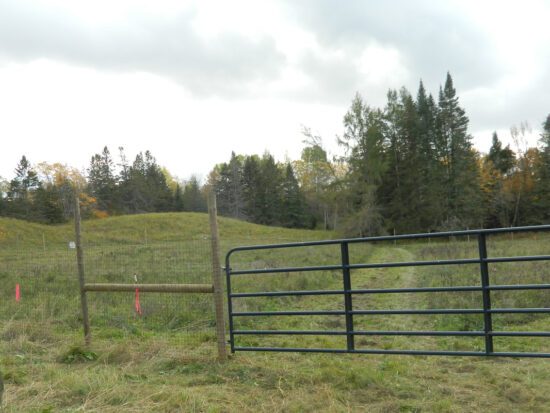
We need your help – We have started some plants, grasses, willows, etc. However, we are looking for input, which species work best for you, and what would you like to see available locally for these projects, please let us know. You can send an email to da.cccd@gmail.com
We have been able to create the Nursery with financial support from the NH State Conservation Committee / Moose Plate Grant Fund.


by Coos County Conservative District | Apr 20, 2021 | Articles
30 Years Strong
 For well over 30 years Coös K-12 kids have received seedlings. This year thanks to Coös County Conservation District and Lancaster Scouts, the event was not canceled due to Covid-19. However, it was done a bit differently. Because Natural Resource volunteers were not able to visit classrooms as they typically would, BSA Troop 219 from Lancaster, and Cub Scouts from pack 219 packaged over 2000 seedling so they could be redistributed to schools throughout the county. Some schools like Colebrook coordinated this with work pick-up day while others delivered seedlings with the school lunch program. Colebrook’s were scheduled to be distributed this morning. Partners including NH State Nursery, Coös County Conservation District and UNH Extension helped make this project possible. Photo Courtesy Boy Scouts Troop 219.
For well over 30 years Coös K-12 kids have received seedlings. This year thanks to Coös County Conservation District and Lancaster Scouts, the event was not canceled due to Covid-19. However, it was done a bit differently. Because Natural Resource volunteers were not able to visit classrooms as they typically would, BSA Troop 219 from Lancaster, and Cub Scouts from pack 219 packaged over 2000 seedling so they could be redistributed to schools throughout the county. Some schools like Colebrook coordinated this with work pick-up day while others delivered seedlings with the school lunch program. Colebrook’s were scheduled to be distributed this morning. Partners including NH State Nursery, Coös County Conservation District and UNH Extension helped make this project possible. Photo Courtesy Boy Scouts Troop 219.
by Coos County Conservative District | Apr 10, 2021 | Articles
Recent purchase available for rent
The recent purchase of a Wood Ash Spreader has also proven to be a great success with our local farmers. Just in the short time we have owned it, several local farmers have benefited from the availability of the spreader to get wood ash and lime on their fields to improve soil quality and group yields.
Comments from a few of our farmers that have used it and their pictures:

 “I used the ash spreader early in the season. Rain was a disadvantage for me the week that I rented the spreader but I got the job done. I spread 150 ton of ash during the week that I rented it. Previous years I had incorporated the ash with manure and used my manure spreader to distribute the combined product. By using the ash spreader I was able to apply a more consistent layer over a wider area, the small size of the machine also allowed me to get back into some more remote places. Thank you so much for making this available to us. It makes a big difference to a small farm!”
“I used the ash spreader early in the season. Rain was a disadvantage for me the week that I rented the spreader but I got the job done. I spread 150 ton of ash during the week that I rented it. Previous years I had incorporated the ash with manure and used my manure spreader to distribute the combined product. By using the ash spreader I was able to apply a more consistent layer over a wider area, the small size of the machine also allowed me to get back into some more remote places. Thank you so much for making this available to us. It makes a big difference to a small farm!”
Tichy, West Milan.
“This spreader is so much better to spread the ash with, compared to my manure spreader. You can see the spread pattern as your moving along. But when I would stop and look for the ash you could barely see it. The next day it was raining a little. Then I could see the fine coating on each pass. This is the perfect way to incorporate the ash in the soil. I didn’t take a picture of the field that rainy morning, but I do have a picture before I filled it up.”
McGee, Lancaster
We would like to Thank the NH Charitable Foundation for providing us with Neil & Louise Tillotson Grant Funds to allow us to purchase this much needed piece of equipment for the North Country.


by Coos County Conservative District | Feb 17, 2021 | Articles, Flashback
February, 2021
 Each year the District holds a Conservation Field Day for the 5th graders from the local valley schools. This Field Day has been occurring for multiple decades with the help from local professionals in NH Fish & Game, UNH Extension, USDA/NRCS, local foresters and farmers, and volunteers.
Each year the District holds a Conservation Field Day for the 5th graders from the local valley schools. This Field Day has been occurring for multiple decades with the help from local professionals in NH Fish & Game, UNH Extension, USDA/NRCS, local foresters and farmers, and volunteers.
Students are able to learn about crops and agriculture, safety on the farm, what animals can be raised, the soil horizons, timber harvesting, and what fish/macro invertebrates are found in our streams and rivers. The field day is a true hands on experience for the students!
Here are some of the photos from the Conservation Field Day in May of 2001 that were featured in the Colebrook Chronicle.





by Coos County Conservative District | Jan 15, 2021 | Articles, Flashback
 Flashback!
Flashback!
Each month, we will be providing Flashbacks of the great work that the Conservation District in Coos County has completed over the years. However for the January Newsletter we wanted to highlight a special event in history!
Soil Conservation in 1937
On February 27, 1937 Franklin D. Roosevelt sent a letter to all state governors urging the passage of state legislation to create a soil conservation district program. The reason for this program was due to the devastating soil erosion conditions from the great Dust Bowl of the 1930’s. Roosevelt’s actions provided land owners with the ability to organize conservation districts as local governmental subdivisions of the state. Forty-five states enacted such laws before the statewide New Hampshire soil conservation district was created in May of 1945. By 1946, and currently each county in NH had its own conservation district.
NH Governor Dale
The picture shown here was taken as Governor Dale signed the bill. Persons in the picture left to right: Alfred L. French, Secretary of NH Farm Bureau Federation; George M. Putnam, President of NH Farm Bureau Federation; Representative Arthur W. McDaniel, Chairman of the legislative soil conservation committee; Governor Charles M. Dale; Representative Roscoe J. Oakes, who introduced the bill in the House; Andrew L. Felker, Commissioner of Agriculture; and Senator Scott Simpson, who sponsored a previous soil conservation bill.
This was a major event in our state’s history! Thank you President Roosevelt for recognizing the need for conservation districts through out the United States!

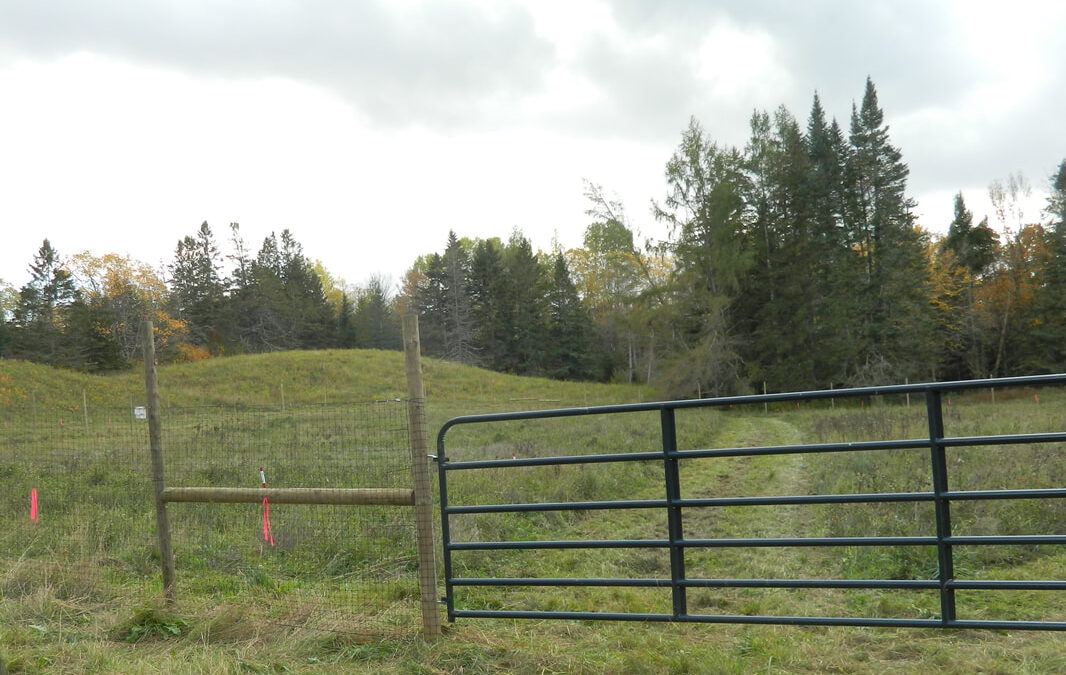

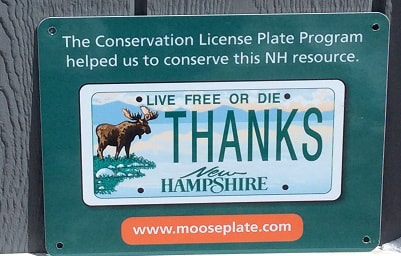
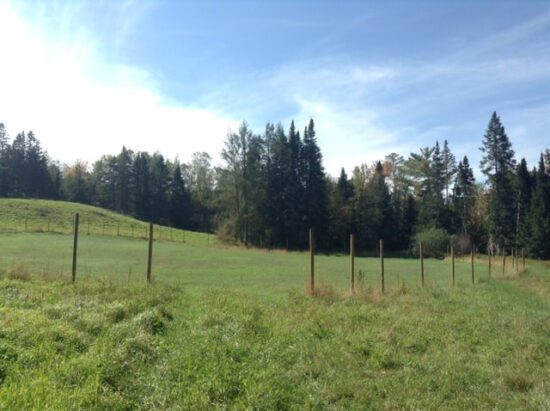
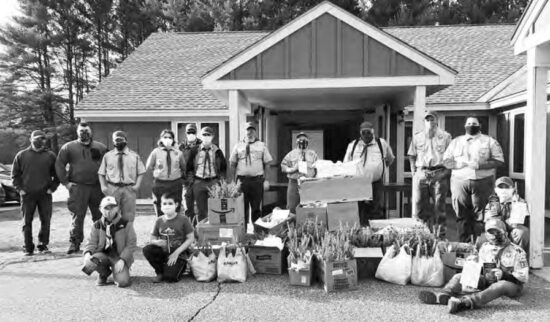 For well over 30 years Coös K-12 kids have received seedlings. This year thanks to Coös County Conservation District and Lancaster Scouts, the event was not canceled due to Covid-19. However, it was done a bit differently. Because Natural Resource volunteers were not able to visit classrooms as they typically would, BSA Troop 219 from Lancaster, and Cub Scouts from pack 219 packaged over 2000 seedling so they could be redistributed to schools throughout the county. Some schools like Colebrook coordinated this with work pick-up day while others delivered seedlings with the school lunch program. Colebrook’s were scheduled to be distributed this morning. Partners including NH State Nursery, Coös County Conservation District and UNH Extension helped make this project possible. Photo Courtesy Boy Scouts Troop 219.
For well over 30 years Coös K-12 kids have received seedlings. This year thanks to Coös County Conservation District and Lancaster Scouts, the event was not canceled due to Covid-19. However, it was done a bit differently. Because Natural Resource volunteers were not able to visit classrooms as they typically would, BSA Troop 219 from Lancaster, and Cub Scouts from pack 219 packaged over 2000 seedling so they could be redistributed to schools throughout the county. Some schools like Colebrook coordinated this with work pick-up day while others delivered seedlings with the school lunch program. Colebrook’s were scheduled to be distributed this morning. Partners including NH State Nursery, Coös County Conservation District and UNH Extension helped make this project possible. Photo Courtesy Boy Scouts Troop 219.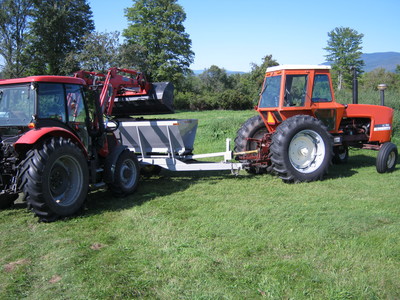
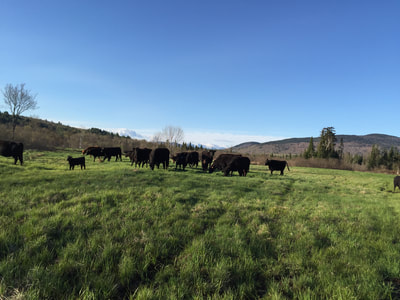 “I used the ash spreader early in the season. Rain was a disadvantage for me the week that I rented the spreader but I got the job done. I spread 150 ton of ash during the week that I rented it. Previous years I had incorporated the ash with manure and used my manure spreader to distribute the combined product. By using the ash spreader I was able to apply a more consistent layer over a wider area, the small size of the machine also allowed me to get back into some more remote places. Thank you so much for making this available to us. It makes a big difference to a small farm!”
“I used the ash spreader early in the season. Rain was a disadvantage for me the week that I rented the spreader but I got the job done. I spread 150 ton of ash during the week that I rented it. Previous years I had incorporated the ash with manure and used my manure spreader to distribute the combined product. By using the ash spreader I was able to apply a more consistent layer over a wider area, the small size of the machine also allowed me to get back into some more remote places. Thank you so much for making this available to us. It makes a big difference to a small farm!”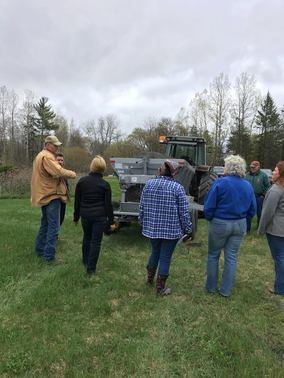
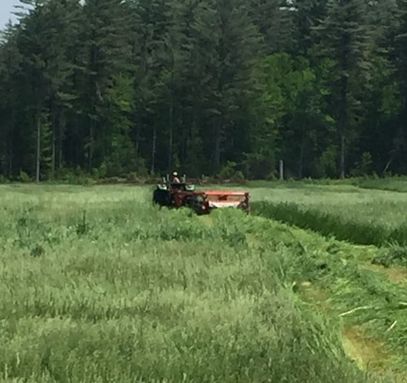
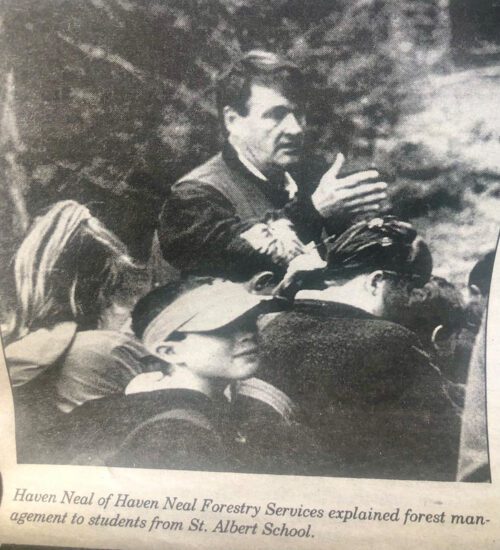 Each year the District holds a Conservation Field Day for the 5th graders from the local valley schools. This Field Day has been occurring for multiple decades with the help from local professionals in NH Fish & Game, UNH Extension, USDA/NRCS, local foresters and farmers, and volunteers.
Each year the District holds a Conservation Field Day for the 5th graders from the local valley schools. This Field Day has been occurring for multiple decades with the help from local professionals in NH Fish & Game, UNH Extension, USDA/NRCS, local foresters and farmers, and volunteers.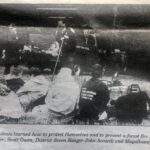
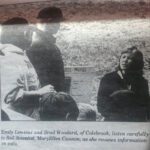
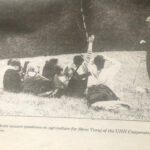
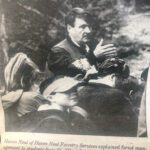
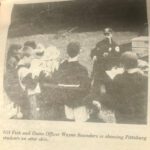
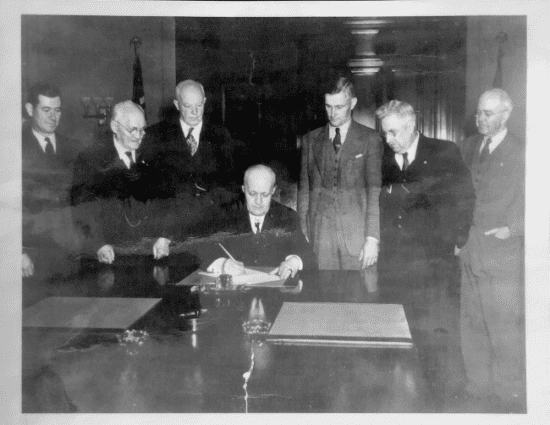 Flashback!
Flashback!